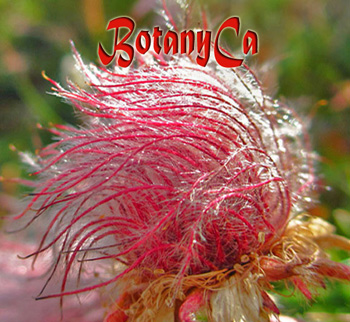Wildflowers Wednesday – Medeola virginiana
I don’t really know why but I got really excited when stumbling for the first time upon Medeola virginiana. As a result, the pictures don’t show its whole splendour revealed under the dappled shade in a moist woodsy area. Named after the sorceress Medea, there are few theories as to why Linnaeus kept this name (given to it by Gronovius) but there is no doubt that there must be sorcery involved in the way a fruiting Medeola looks.
The contrast made by the dark purple fruits with the red petioles and red tinged leaves (at the base) is striking and considered its most ornamental feature. Young plants resemble a bit with a Trientalis for me, or a Large leaved pogonia (Isotria verticillata) to others (I have never seen this one). Mature flowering individuals are very particular though, showing the two-tiered whorls of leaves. I think the flowers are pretty cool too, as seen in the featured image (not my picture in fact, but coming spring I know where to go now).
And the trivial: the common name, Indian cucumber-root, alludes to the fact that rhizomes have a cucumber taste/odor and were used by the Natives Americans; the plant was also supposedly used medicinally. In Canada apparently we don’t have problems with it but in the U.S.A., according to NatureServe, Medeola is listed as critically imperilled in Florida, Louisiana, and Illinois.
Either way, I think there are enough cucumbers on the market today, there is no need to dig up Medeola, which is vulnerable to harvesting and slow to propagate.











Love your posts, I see things I never knew existed… thanks.
What she said…Love your posts! Leaves remind me of Paris or Trillium a little. Will you have seeds next year?
Thank you! You are most kind; I’ve also seen ‘things I never knew existed’ growing in your garden :)
Thank you! Now that you mentioned it, indeed it takes a bit after Paris, and unfortunately the pattern germination of the seeds as well. At least that’s what I found on the ‘world wide net’. I placed few seeds in the shop and there should be few next year as well; not too many because it is a small population and I collect only a small percentage of the fruits in such cases.
This is another beauty! I also thought of Trillium when I saw it. Nice to see Sue here :)
Thanks. Too bad it’s in the ‘slow germinating’ category, or to use another saying, a ‘patience genus/species’.